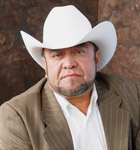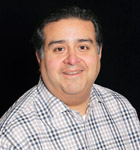If you want to get to know Tomas Cookman, start by perusing his iPod. On it, you will find artists ranging from the renowned rock band the Ramones to noted hip-hop acts such as the late Big Pun. Cookman traces his versatile taste in music to growing up in New York City, where he learned the beauty of variety and the magic of thinking outside the box. “New York—regardless of whether you are talking about music, food, fashion, art, or just people walking down the street—allows you to experience so many different variations of everything,” says Cookman, now founder of the Los Angeles-based entertainment company Cookman International and indie music label Nacional Records. “It is a true melting pot and that, for me, meant that it was OK to mix and match, take something you liked from column A and mix it with column B to create something new and exciting. That same philosophy I extend to business, life, and the decisions I make.”
So far that philosophy has helped him make the right moves. After managing major Latin-music artists for some time, in 2005 Cookman founded Nacional Records, which has been named by Billboard as one of the top indie labels and boasts artists such as Manu Chao, Ana Tijoux, Nortec Collective, La Vida Bohéme, and Los Fabulosos Cadillacs.
Cookman’s eclectic music taste is one of the things that makes him so well suited to manage and promote artists who don’t fit the mold of traditional music genres, which is exactly what Latin alternative music is all about. Cookman wishes, however, that there were a better way to describe the music created by the artists in his company; the term “Latin alternative” doesn’t always capture the essence or range of this wide field. “It is not like saying jazz or hip hop or bachata in that you say a word or two, and automatically you know what is being discussed,” Cookman explains. “There is no one specific sound, genre, beat, or even theme in Latin alternative. You have rock bands next to hip-hop acts next to reggae bands next to modern pop artists. What they all have in common is that they are not afraid to step out of the box.”
Cookman’s introduction to the music business came through playing in punk-pop bands in the early 1980s. Being in New York took his music education to a higher level, he says. “I was fortunate enough to start off in the whole Lower Manhattan world of CBGBs, art lofts, punk rock, early hip-hop, DJ culture, and crazy clothes and hair styles,” Cookman says. “It was a magical moment of cultural change. It was also a big change for a kid who grew up in the projects of the Lower East Side [neighborhood] in a single-parent Puerto Rican household. It took a lot of courage to walk through my neighborhood the way I wanted to dress and be, but I knew that there was so much more waiting for me just beyond the handball courts and park benches that surrounded Smith Houses.”
Nacional Records is just a segment of all Cookman does for Latin music and Latin culture as a whole. His company Cookman International is a full-service entertainment company that promotes music not only through Nacional Records but also through artist management, music publishing, radio and television production, brand marketing, and special events such as the Latin Alternative Music Conference. Now in its 13th year, the conference features panels with industry insiders and showcases of top Latin artists ranging from Calle 13 and Pitbull to Julieta Venegas and Manu Chao. “At the LAMC, we have been able to draw over 1,000 attendees to the conference site and thousands upon thousands to the showcases that we hold across New York City,” Cookman says. “… There are not many outlets where you can have the president of Atlantic Records sit next to the head of a hip indie label in Colombia on one side and the head of Pandora on the other.”
Despite his success, Cookman remains a hard worker, is a true family man that makes it a point to be home by dinnertime, and still loves listening to demos. Traveling allows Cookman to meet and collect demos from new artists, something he never gets tired of doing. “There is nothing more exciting than clicking play on a track that you do not know much about and being able to hear and see the potential of that artist,” Cookman says. “That feeling when the song is just so damn good that you get goose bumps is one that I hope never goes away.”

